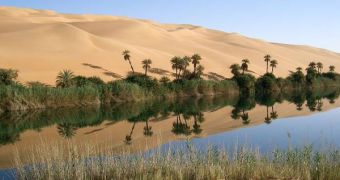With access to clean water and sanitation being one of the largest problems in the world today, gaining access to the precious resource, which is basically what keeps us alive, could soon become a problem. Despite not acknowledging the issue of global warming publicly, so as to avoid having to take action and reduce their influence on the environment, water companies are desperately trying to get most fresh water resources in the world in private hands, thus raising an ethical and moral discussion about whether the world's access to water should be regulated and decided upon by three or four major companies.
Over the past couple of decades, policies enacted by the International Monetary Fund (IMF), the World Bank, and the World Trade Organization (WTO) have ensured that most national water companies in the countries they'd “helped out” with loans moved in private hands, and were privatized shortly after. At this point, there are very few countries that have managed to hold on to their own water supply, and those countries are mostly in the developed world, as they are the only ones that do not need “help” from these three institutions, as well as from others like them, Wired informs.
With the planet's fresh water reserve constantly decreasing, because we consume more, but also because sweet water from glaciers melts into the oceans and becomes salty, the possibility for six percent of the world's population currently dying because they do not have access to clean water to be able to survive decreases constantly. The same holds true for ten percent of the world's population currently suffering from diseases related to the fact that they regularly consume poor-quality water. It stands to reason that the poorest people in the world, living off less than $1-2 per day, will not be able to afford to pay money for water every day to companies that own reserves the individuals should have.
Ethicists have long since argued that the so-called “advantages” that placing water reserves in the hands of a few has, such as more efficient management and distribution, are simply not true, and that the most basic resources in a country, such as food production, and water supplies should remain the propriety of their respective people and governments. Seeing how most privatized water systems in the world are owned by just three major companies, the range of abuse they can subject millions of people to is mind-boggling. And they do it all for profit.

 14 DAY TRIAL //
14 DAY TRIAL //